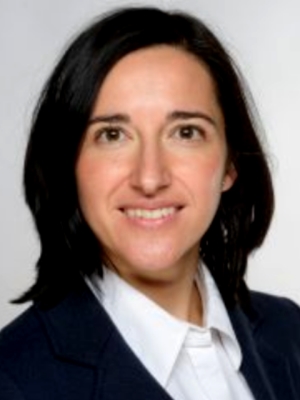The CSFM Symposium on 29 May 2024
The Center for Sustainable Future Mobility (CSFM) Symposium 2024 was hosted at ETH Zurich on May 29th. The event featured interesting presentations on Mobility Initiative projects as well as keynotes from Marta González, Professor of City and Regional Planning at the University of California, and Juho-Pekka Virtanen, Product Owner of the Digital Twin at the Forum Virium Helsinki.

Event overview
The Center for Sustainable Future Mobility (CSFM) Symposium 2024 took place on May 29th. The event featured a keynote by Marta González, Professor of City and Regional Planning at the University of California. She presented her research on using mobile phone data to create models for managing demand and planning infrastructure development, understanding transport congestion, and defining urban structure and accessibility.
Juho-Pekka Virtanen, Product Owner of the Digital Twin at the Forum Virium Helsinki, shared insights on digital twins for mobility. He discussed the motivation, conceptual definition, and applications of digital twins, emphasizing data integration challenges over conventional traffic flow simulations and 3D city models.
Following the keynotes, young scientists presented their work in the poster award pitches, encouraging participation in the poster session.
A panel discussion concluded the morning session with Sara El Kabiri from the Swiss Federal Office of Spatial Planning (ARE), Patrick Bützberger, Head of Transport Planning at SBB, and the keynote speakers, moderated by Emilio Frazzoli. Patrick Bützberger briefly introduced the transport simulation activities at SBB, emphasizing the challenges and benefits of predicting mobility behaviour for transport operators. Sara El Kabiri outlined the Federal Office of Spatial Planning's role in mobility policy and sustainable development in Switzerland.
The panel addressed the importance of the transition towards sustainable transportation, emphasizing the complexity of the system and the need for collaboration among stakeholders. They stressed the necessity of dialogue and a shared vision among public administration, service providers, and society, along with practical examples and pilot projects to demonstrate viable solutions. Adequate models and data accessibility are crucial for guiding decisions, despite challenges in data sharing. Collaboration should be incentivized, and public authorities must be technologically competent and ready to act as regulators.
The afternoon session featured presentations of ongoing Mobility Initiative projects:
- Autonomy-enabling Infrastructure for Future Mobility Systems (InsideOut) by Mingjia He, Institute of Dynamics Systems and Controls (D-MAVT)
- Power and Energy for the Future Railways (RailPower) by Georgia Pierrou, Power Systems Laboratory (D-ITET), and Michael Nold, Transport Systems (D-BAUG)
- Multimodality in the Swiss New Normal (Multimodality) by Daniel Heimgartner, Transport Planning (D-BAUG)
The event concluded with a focus on the CSFM Digital Twin project, a lighthouse project of the center, highlighting current use cases by Stefan Ivanovic from the Digital Twin team, and Yanan Xin from MIE Lab at the Chair of Geoinformation Engineering, IKG, on leveraging the CSFM-Open Digital Twin Platform (ODTP) for evaluating machine learning model robustness in mobility prediction.
The Best Poster Award was granted to Marc Albert from the Institute for Dynamic Systems and Control (D-MAVT) for his poster Download Autonomy-enabling Infrastructure for Future Mobility Systems: An Inside-Out Approach (PDF, 1 MB). The jury, consisting of Marta González, Juho-Pekka Virtanen, Sara El Kabiri, and Patrick Bützberger, evaluated the candidates based on content novelty, applicability towards CSFM goals, poster design, and their three-minute pitch.
For those who missed the event or wish to revisit the presentations and posters, they are available for below. We look forward to welcoming you to future CSFM events. Enjoy browsing!
